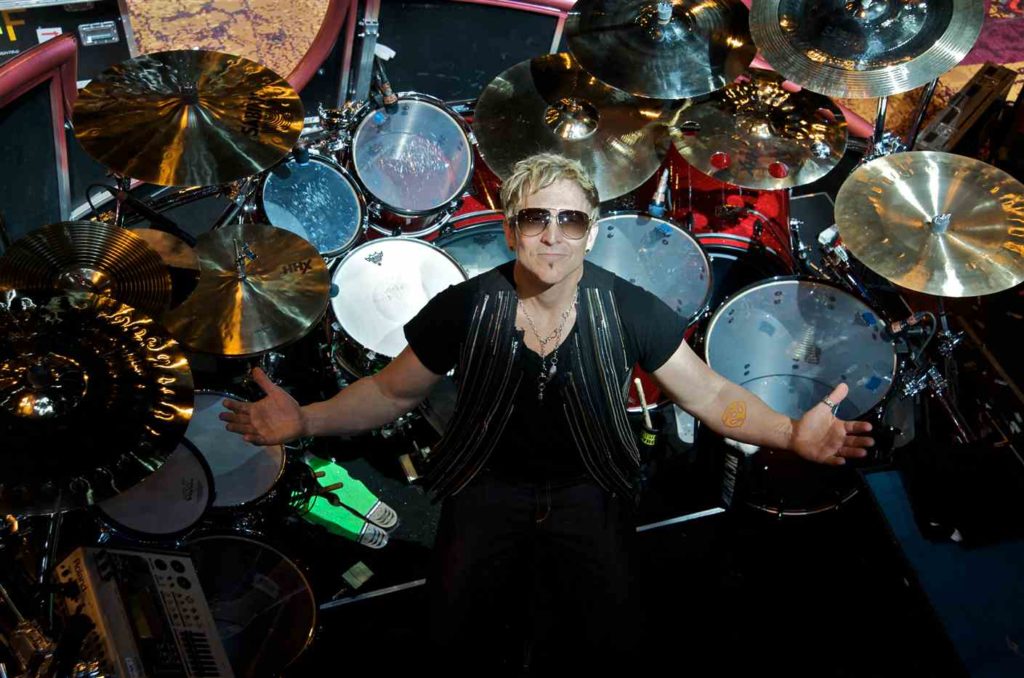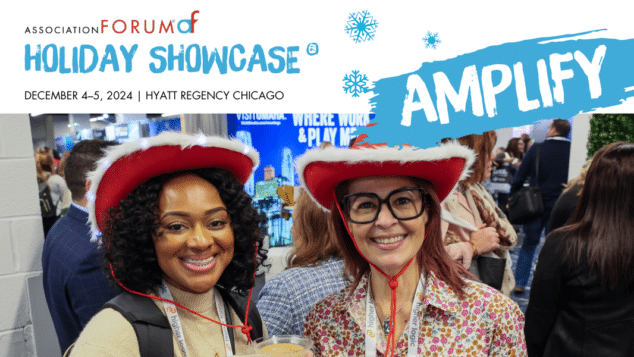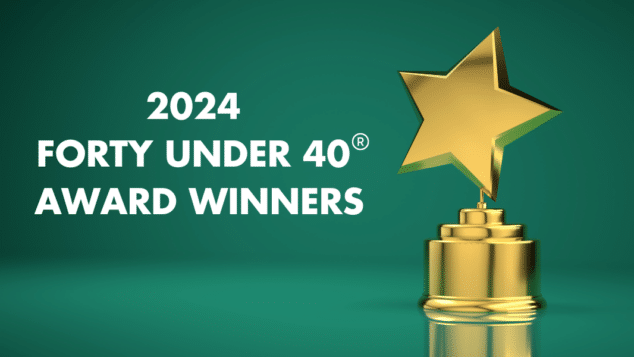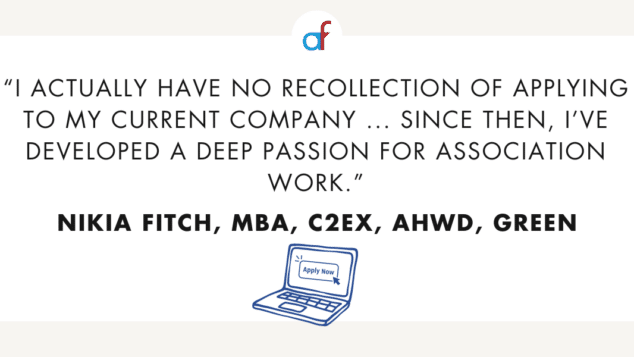How Mark Schulman Shifts His Attitude to Adapt to Change

When I sat down to interview Pink drummer Mark Schulman over Zoom, I was expecting tales from the road and how on-stage performance can relate to boardroom matters. But, Schulman didn’t speak much about his time touring with Pink or performing for a myriad of other rock ‘n’ roll artists. He could easily have name-dropped, as he’s performed for Cher, Billy Idol, Beyonce and more. Instead, Schulman excitedly espoused his views on attitude and how positivity has shaped his life. What follows is my conversation with Schulman (edited for length and clarity) and a preview for his keynote. Be sure to register for Holiday Showcase 2020 to see his closing keynote at 2 p.m. on Wednesday, Dec. 16.
AF: What has this time been like for you? Have you been quarantining? I’m guessing Pink hasn’t been able to tour. Had she planned on it?
MS: Fortunately, this was not a touring year for me. It was going to be a windfall speaking year. Just in the months of March and April, I had 19 speaking gigs, shoo [waves hands away], gone like that. As I talk about in my speeches, what I believe a lot of this comes down to is how we navigate change. How do we manage change? Do we embrace it, or do we resist it? And it’s either either/or: you’re either going to embrace or resist. I was resisting it horribly; I thought there’s no way I could recreate what I call my rock show, disguised as a keynote, which is so high energy and so interactive and so much drumming. I thought I could never do that virtually, and I really resisted it. It really caused a lot of fear and anxiety. I woke up one morning, and I said, “What story are you telling yourself here?”
And then, I embraced it. And it’s like, the moment I embraced it, I tapped into this level of creativity and solutions that I never even thought I had. I got so excited, and I created such a fun and interactive virtual presentation that’s exceeding my expectations, and the clients seem to be very happy. So, I’m really excited that I recognized the need to embrace rather than resist. I tell people the same thing because, throughout all of this, our tendency will be to resist it initially and then eventually embrace it. Now I just skip the step of resisting and go immediately to embracing it. When I realized that I can do that with all of this, because there’s a lot to resist and there are a lot of challenges, but if you go to embracing the challenges, then you become solutions-oriented and you become very, very creative.
To me, I believe that that’s within all of our capabilities, so to speak. I’m so glad that I worked out a virtual presentation because I believe that our world is going to be a hybrid, a virtual life. It’s not like it’s going to go back to exactly the way it was. I don’t think anybody expects that. So, I think that the more we embrace what it has become, we can look at it as a new frontier —which will be a hybrid of everything.
AF: That’s great. You told me a little bit about how this time has translated into your business, but how do you see being a rock star and a performer, being in that realm translating to business success for association professionals and non-profit professionals?
MS: Well, I think that the two businesses that I’ve been in, speaking and touring, are two of the businesses that were hit hardest and that will come back. I mean, look, we have a couple of vaccines that are so close, and we have about four other companies from what I understand that are close, as well. The touring industry really relies on people being in-person. I believe that’s the energy that we get, and the energy that we produce and receive and exchange is based on the live experience. I think 2021, I mean, there are artists planning big tours next summer already. I know that Pink hasn’t yet, but she probably will.
I’m sure that we will return to that level of touring we had, especially outside because almost all the gigs we were doing last summer were outside. I believe that’s the safest way to do it, but I think that will all return. You don’t get the same satisfaction or the kinetic experience from music when you see it online as you do live. I mean, you see performances, they’re still very exciting, and I still watch videos all the time, of course, but I think there’s nothing like a live experience. There’s something about the live experience for conferences as well, because I believe that conferences are not only for information, but they really are for communication and for relationships and exchanging energy and to have fun.
People love to go to a party, let’s face it. That’s why I think what’s going to be amazing though, for associations in particular, is I think that the hybrid is actually going to increase your reach because you’ll be able to get to the people that were going to come anyway, but you’re also going to have to be able to because now people are used to the hybrid, you can do hybrid situations where you have speakers live, but then you’re broadcasting, rebroadcasting to a lot of people that might not be able to come or wouldn’t have come anyway, but now we’ll be able to be a part of that experience. So, I think the hybrid experience is actually going to be an enhanced experience rather than one that’s going to sort of diminish the live experience. I know that so much of the association experience and success is based on the connection and the collaboration and the live experience. But I think it’s going to be better than it was. I really do, and I’m not just, I don’t think that’s false optimism, I think that’s evolution.
AF: I hope you’re right. Associations are all about community and that’s been something that’s been tough to recreate virtually. I’ve seen some iterations of how groups try to recreate it. They have networking lounges and things like that. But, you’re right, it’s not the same as bumping into someone in the hall between sessions. You really just can’t recreate some of it.
MS: Humans are kinetic. That is part of our survival and our nature. But I think that we’ve adapted incredibly well with what we’re doing virtually, and we can take that and then use that to be an adjunct to the live experience.
AF: Yeah. You’ve worked with some of the greatest performers of all time and it sounds like you’ve spoken to even more for your books. What are some of the tips, some of the things that you’ve gleaned from those conversations and those experiences on how to stay driven and how to achieve that upper echelon of success?
MS: Well, that’s the topic of what I speak about. And, I mean, I live by, swear by and writing about the concept that it all really begins with attitude. I know that sounds like a very sort of generic way of looking at it, but I go to great depth about attitude. My belief is that we cannot control what happens to us. And this pandemic is a painful example of that, but we always have the power, no matter what happens. You have the power right now, any moment in time to change, shift or choose your attitude about what is happening to you. And that puts the power back with you because your attitude is like your viewpoint. I call it your vantage point or your disadvantage point, depending upon the attitude you choose.
Remember, it’s not what we look at. It’s what we perceive and what we believe that determines our experience. Your attitude is so profoundly powerful that your perception of yourself and the lens through which you see the world and the meaning that you attach to people, places and circumstances are all based on, basically the stories that you tell yourself. And the stories you tell yourself start with the attitudes that you have. So it all begins with attitude. What makes this so incredibly powerful is your attitude is actually what drives your behavior. Now really think about that for a minute. That’s a very strong implication because by choosing or shifting your attitude, that means you’re actually changing your behavior and driving your behavior to be more desirable. Your behavior is what determines the consequences or the outcomes of your life.
I’ve interviewed dozens and dozens and dozens of top performers in all industries: sales, technology, healthcare, finance insurance, the music business, neuroscience, CEOs, world-class athletes. I talk to everybody about how they understand the power of attitude and how they have used the power of attitude to change outcomes, and how they’ve used the power of attitude negatively to affect them negatively, and what they’ve done consciously to shift it. Then when I speak, I talk about some very specific attitude shifts.
AF: Wow.
MS: There’s a big misconception because I think that there’s been a lot of orientation on this planet of behavioral modification and behavioral understanding, but your behavior really is determined by your attitude, so it begins with your attitude. So you need to go back a little further and go a little bit deeper and understand, and also understand that it’s a gift to be aware of this mechanism, because then you have the power to help influence and impact the attitudes of others. And that’s profound. I coach people on how they can consciously create so much power through attitude shifting, or attitude manipulation, or whatever you want to call it, to drive literally different behaviors and consequences. That’s why I know it’s important. Sometimes I might shift my attitude dozens of times during the day to really stay focused on that behavior, to achieve those consequences that I know that I want to achieve. You need to remain conscious, you need to remain present, and that’s a critical part of it.
AF: You say you need to remain conscious and present. I love that idea because I feel like right now it’s harder than ever to do that, just with the way technology has consumed all of our lives. How do you look at that with just technology and the way that our phones and our watches are all buzzing at us a hundred times a day and that type of thing?
MS: Well, another thing that I’ve realized that is really critical with communication is: Are you responding or are you reacting? These are very reactive times. When you’re reacting, essentially you’re playing old memories, old patterns, old prejudices, and that keeps you from being present. That keeps you from actually responding in the moment. When you’re responding, then you are actually present and you are thinking in terms of what is happening right now, as opposed to reverting to old patterns and a lot of negative patterns. It’s very easy, as I said, to be reactive now. So being present means you’re responding. You’re looking at things as you can, based on what you’re experiencing right now in this moment. Again, it takes paying attention because it’s so easy to just go to old patterns. I think that remaining present tends to reduce our anxiety, because then you’re not trying to support your emotions with all of this negative baggage that you have. You’re just, “Okay, here’s where I am. This is what is reality right now.” Because the truth is that the past actually does not exist.
Memories of the past exist, but these are only memories. All we have is now. I came up with something that I told Pink years ago, and she loved it: Life is a series of nows. I’m a cancer survivor, and I lost my mama last year, and when you’ve gone through things like that, you start to appreciate every millisecond in every moment. You start to realize that every moment is precious. I try to be really present. I have a 10-year-old daughter, and I try to be very present with her and in the moment, so we can really enjoy and embrace what comes up right then and there. It makes living through these very reactive and challenging times easier for me because I’m not constantly reverting or worrying about the past.
I am a bit of an optimist, but to me it’s a lot more practical to be an optimist because you have a choice, you always have a choice. Again, it comes down to attitude. Again, you have a choice as to which attitude you are going to allow to represent your being, so to speak, at that moment in time. What excites me is I know I’ve got that choice at any moment. I just stop and remind myself to shift. One of the greatest attitudes shifts for me is gratitude. I’ve always been a purveyor of gratitude. I mean, Pink’s nickname for me is Disneyland.
MS: Gratitude is like a vaccine that helps you vaccinate yourself against focusing on what you lack, as opposed to what you’ve got. Because, that’s all gratitude is — a focus and paying attention to what you’ve got. So if you’re focusing on what you’ve got you tend to create more of what you’ve got. Focusing on your lack, then you tend to create more lack. It’s like, if you focus on the fear or you focus on, I’m not going to be afraid, I’m not going to think of a white elephant. What do you do? You think of a white elephant. You can’t help it because your brain listens to what you tell it to do.
You need to understand that there’s a consciousness in you. Call it the observer, call it God, call it soul, call it spirit, or whatever the heck you want to call it, but there’s something bigger than your mind. You are not the mind. We tend to believe that we are our thoughts, and we are our minds, and we aren’t. We are senior. We are above and beyond. You can just step outside of yourself and be that observer. Then you can make some conscious decisions rather than unconscious reactions. This is all the kind of stuff that’s helped me through these times and also understanding, this too shall pass. If you start to look at history, you realize there have been some way more messed up times in history than this. This is a challenging time. I’m not downplaying the challenge of this time, especially for our industries.
AF: You mentioned the nickname Disneyland, which I saw on one of your promo videos and it made me wonder, is this a perspective? I mean, obviously you’ve done a lot of work and a lot of research and had a lot of discussions on the larger part of this outlook, but were you always an optimist or were there pivotal points in your life that you think kind of pushed you towards optimism? Or have you always had a really great attitude?
MS: I think I’ve been fundamentally a reasonably happy person for most of my life, but I did a lot of study and cultivation and work to expand it and to evolve it and to be able to be of service through it. I see myself as just a servant to everybody. When I’m on stage playing drums, I’m there to be of service to Pink, to the band, to the audience, to the crew. I try to make myself as low maintenance as possible. Even my family, if my wife and my kid are happy, I’m happy. Not that I don’t whine every once in a while. It’s not like I wake up all sunshine and rainbows, but when I wake up every single morning, I’d say I do three things. I’m very big on morning rituals because I’ve read a lot about successful people and entrepreneurs. The one bit of continuity and commonality is morning rituals.
I wake up and the first thing I do is I just tell myself: “24 brand new hours, I get to have 24 hours,” and I literally smile. And then I reflect on the day before and think about everything that happened for which I’m grateful.
Then I do a morning workout, and I meditate. My mind never shuts up, so I don’t expect my mind to shut up when I meditate. I actually meditate to take really long breaths because I know that’s very good for me, and I usually think of incredible things when I meditate. It gives me the space to let the clutter get out.
AF: Yeah. Meditation is great. It’s amazing how helpful it can be in a short amount of time.
MS: Absolutely. I really look forward to it because some days I miss the meditation, and I know I should meditate for 15 minutes. If I have longer, I might go longer. But, as I say, for me, it’s just a chance to breathe. It’s me time. One of my favorite things — and people know me for this — is the shifting from a “have to” to a “get to.” I look at so many mundane things in my life that I get to do as opposed to have to, and it changes my attitude completely about the experience.
AF: For sure. My last question is pretty broad, but what are the takeaways you want the audience to leave with after you give this presentation at Holiday Showcase?
MS: Well, I basically gave you my greatest hits in everything we talked about so far, but the reason for that is because I want people to understand that they have the power. Everybody has the power at any moment to actually shift their thought process, shift their chemistry, shift their emotions. The chemistry for fear and excitement in the body are identical. The very things that you can be afraid of, you can turn around and be excited about. Even these opportunities during COVID, like I’m looking for opportunities and I’m looking for things to shift, to take that fear and shift it into excitement. I know if I can do it, then anybody else can do it. I think that 99% of what is going on that makes us feel challenged or makes us feel negative is literally all in our head.
As long as you are safe, you are taken care of, you’ve got food, shelter, and you can take this situation and you can look at it creatively and as an opportunity. That’s what I’m trying to present for people — the understanding of what possibilities they’ve got. That makes me happy because that’s what I try to do for myself. I’d rather look at the options and the possibilities and the excitements and understand that I have that power at any moment to shift my attitudes so I can drive more desirable behavior and consequences. That gets me excited.
AF: I love that. Well, I think this is going to be really helpful for this audience. I love that it seems to translate to people, both as individuals and with the struggle of working from home. What you’re saying about shifting the fear and anxiety into opportunity, I think that’s what we’re all trying to do in our boardrooms right now. How can we take these revenue deficits and shift our minds to making them an opportunity for how to do things in the future?
MS: Yeah. I’m quite excited about 2021. I think a lot of people are because 2020 has been one of the most unique and challenging years we’ve ever had. Who saw that coming, right?
AF: Right. Well, we’re happy to have you, and after speaking with you, I know you’re going to be a perfect fit for this audience.
MS: Excellent. Well, thank you so much and I’m really grateful for the interview, as well. I love the opportunity to be able to share information and prime everybody for what’s coming up. I’ll tell you, my energy level right now is one-tenth of what it’s going to be during the virtual presentation. Because I really do, I believe that it’s my job to create energy and help that energy transcend into everybody else because I’m the furthest thing from a talking head you can ever imagine.
Tags
Related Articles
Association Forum Unveils 36th Annual Holiday Showcase® – Amplify
Holiday Showcase is the Chicagoland association community's favorite meeting! Be sure to register today so...
Association Forum Announces the 2024 Class of Forty Under 40®
We honor forty young professionals who have proven to be invaluable assets to this profession.
Member Spotlight: Nikia Fitch, MBA, C2EX, AHWD, GREEN
Nikia is Executive Assistant at the Chicago Association of REALTORS®. Read on for whe she...




